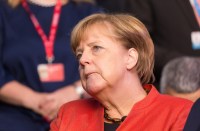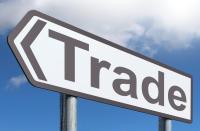The only reason that Rodrigo Duterte’s political opposition exist is due to the fact that they are propped up by a broken economic system which perpetuates a permanent political kakistocracy that prevents a true meritocracy from taking hold. Thus, the key to reforming Philippine politics and sending Duterte’s moronic opponents to the scrapheap lies in wholesale economic reform.
The reason that The Philippines has no political discipline, no political efficiency, no political processes capable of moving at the requisite speed to truly create long lasting reforms and the reasons that charlatans like Maria Ressa and her bandit like supporters, foreign billionaires and loser celebrities are able to ride roughshod over the will of the people is because the very structure of the political and economic system is fundamentally flawed.
This is why I personally support the CoRRECT Movement as their proposals for abolishing economically crippling constitutional restrictions on foreign direct investment (FDI), a shift to parliamentary governance and a shift to a federal republic will all help to drain the cesspool that is today the political atmosphere in The Philippines. Focusing on FDI restrictions in particular, it is important to understand how a society ruled by corrupt oligarchs will inevitably produce mediocre politicians, the likes of which continue to throw stones at the rare breed of heroic political leader as best embodied by Rodrigo Duterte.
The great tragedy of the country that after the Second World War rapidly recovered from occupation to become the richest in Asia before things went downhill, is that the people can do much better if given the right atmosphere in which to thrive. It is no wonder that OFWs find success throughout the world in professions ranging from highly productive wage labourers to prominent business owners, medical professionals, entrepreneurs and community leaders. The difference is that many of the countries to which OFWs travel in order to start a new life have economic systems that are open to foreign direct investment without the draconian restrictions and mind boggling red tape that exists in The Philippines.
When discussing whether amendments should be made to the 1987 Constitution of The Philippines in order to eliminate rules which severely retard the amount of foreign direct investment (FDI) coming into the country, many people phrase such debates in terms of “nationalism” versus “globalism”. The fact of the matter is that at an international level, both words have become so diluted so as to lose any specific meaning while more importantly, in the Philippine context, they are blatantly misleading.
The anti-FDI and by extrapolation anti-free trade clauses of the country’s current and grossly outdated constitution are often described as economic “nationalism”. A better word would be pseudo-autarky. Auturky is a state of total economic isolation/self-reliance which means that no inward nor outward trade or investment will take place. In reality, few modern societies have ever truly been autarkic. Even North Korea after the collapse of its Soviet ally continued to trade with China, India, Syria, Egypt and even with some entities in Singapore and at present, the DPRK looks to open its economy in line with the current outward looking peace process.
While The Philippines has thankfully never been as backward as either communist nor-post communist Albania, the idea of an anti-FDI/anti-trade constitution leading to the development of a black narco-market will of course be familiar to every Filipino reading this. While Albania transitioned from communistic autarky to a free for all black narco-market, The 1987 constitution of The Philippines had for decades left the country with an odd mix of both.
Without providing the equality of misery of a command economy, the 1987 constitution nevertheless concentrated wealth in the hands of a small group of elite oligarchs that even critics of the Marcos era have come to described as ‘many little versions of Marcos’. As such, the people have been deprived of opportunities to court investment from abroad in order to develop Philippine industry on a Singapore, post-1980s Malaysia, Hong Kong or post-1978 Chinese model. Because of this lack of opportunity, a free market does exist in The Philippines but it is a black market and beyond this, it is a grim one.
Both Deng Xiaoping’s and before that Lew Kuan Yew’s economic miracle relied on the combination of local talent learning from and being employed by the expertise and FDI coming in from abroad. There is absolutely no reason that a country filled with young, English speakers could not do the same in The Philippines and there is furthermore no reason why this wouldn’t lead to home grown innovations after less than one generation. As North Korea looks to follow the same model, it would be somewhat ironic if the allegedly “most American” nation in Asia was to somehow fall behind even North Korea in terms of economic openness and modernity.
The answer therefore lies in economic openness and since this openness is ideally openness to partners from throughout the world, it is often called “globalism”. And yet, the term globalism has come to take on a different meaning, mainly because of social movements in both the US and Europe that have more to do with race relations in western societies than they have anything to do with trade or FDI.
Thus, one can see that preserving one’s cultural characteristics has nothing to do with one’s economic system. China after all is the world’s number one recipient of FDI and the idea of promoting Chinese cultural characteristics is a key element of Xi Jinping Thought.
The argument therefore should be one of an economic oligarchy that breeds a narcotics fuelled black market on the one hand and economic openness on the other. As for cultural characteristics, these like anything else can be best preserved in a prosperous atmosphere rather than one of poverty in which people confuse economic lethargy for a cultural characteristic.
Filipinos are not destined to be poor and they are among the hardest working people in the world. But due to decades of economic mismanagement, Filipinos are working hard for the economies of America, the European Union, South Korea, China, Australia, Canada, New Zealand, Singapore and the wealthy Arab monarchies rather than for the economy at home. This is because while nations like South Korea and China export goods, The Philippines exports people – by any definition this is the antithesis of both economic openness and nationalism.




